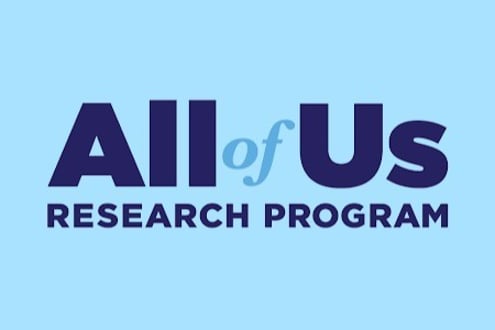How to Decide About Genetic Testing
Making a Decision about Genetic Testing
If you are considering genetic testing and wondering how to proceed, the following steps can help you make an informed decision and move forward with your plan.
Speak with a genetics professional
A genetics expert can reduce the uncertainty about whether you should have testing, which test to order and what the test results mean for you and your family. They will not try to talk you into or out of testing, but they will support your decision. Genetic counseling is the most reliable way to obtain up-to-date information and formulate a plan.
- If you are undecided about genetic testing, a genetics expert will provide the facts you need to make an informed decision. They will consider your situation and preferences and help you pursue the path you decide is best.
- If genetic testing has been recommended but you have decided not to pursue it, a genetics expert can help ensure that your decision is based on facts and in your best interest.
- If you are sure that you want genetic testing, a genetics expert will ensure the proper test is ordered, help to obtain insurance coverage or help find low-cost testing, interpret your results and explain your medical options.
Ask your doctor for a referral to a genetics expert. If no expert is available in your area or if appointment wait times are too long, consider contacting one of the providers listed here, who can provide genetic counseling by telephone.
Consider your situation and feelings
Your situation can affect how and when you proceed with genetic testing. Some people find it helpful to imagine how their result—either positive or negative—might affect their medical options and how it might make them feel.
- If you are newly diagnosed with cancer or a recurrence, genetic testing may help you make treatment decisions.
- If you have completed cancer treatment, genetic testing may help you understand your risk for a new cancer diagnosis and affect your decisions about cancer screening and prevention.
- If you have never been diagnoosed with cancer, genetic testing can clarify your risk to help you make decisions about cancer screening and prevention.
- Testing can provide your relatives with information about their risk for cancer and options for managing their risk.
Learn about the cancer in your family
Learning about your family medical history can help you and your healthcare team decide whether genetic testing is likely to be of benefit and which test might be best for you.
- Find out whether any of your relatives have already had genetic testing. If any of your biological relatives have tested positive for an , it's important to ask for a copy of their genetic testing laboratory report and any family medical history they can provide.
- If you are the first to have genetic testing in your family, you may need to collect your family medical history starting from scratch. Try to gather information about close relatives who were diagnosed with cancer, the type of cancer they had and their age at diagnosis. It is best to have this information at the time of your genetic counseling appointment. Pass on this information to any relatives who also decide to pursue genetic testing.
Low-cost genetic testing
Other options for testing may be available for those without insurance coverage or high out-of-pocket costs. Many labs offer financial assistance or low-cost testing for about $250. Another option may be participating in genetics research. (Some clinical trials include genetic testing with participation in the study.) You can learn more about these studies here.
Don't go it alone
It can be reassuring to speak with and get support from other people who have had genetic testing. FORCE has numerous programs to connect you with peers and trained volunteers who understand your situation and the decisions you face. You may also want to speak with relatives who know you, your preferences and your priorities to gain additional insights.
Increasingly, testing for an is available outside of the healthcare setting, without genetic counseling and in some cases, without a doctor. Even though you may be tempted to follow the "do it yourself" route, we recommend you begin by speaking with a cancer genetics expert.
More Information on Genetic Testing for Cancer Risk
How to Get Genetic Testing
Are you interested in getting genetic testing? Learn about next steps.
Choosing the Right Test
Genetic tests are not all the same. Learn about the different types of tests and the information they provide.
Genetic Counseling
Genetics experts can help you understand genetic testing and interpret test results.
Benefits and Limitations
Genetic testing can provide important health information, but there are limitations you should know about before testing.
Types of Test Results
It's important to understand your test results and what they mean for you and your relatives.
What to do After Testing
Learn about the next steps after receiving your genetic test results.


